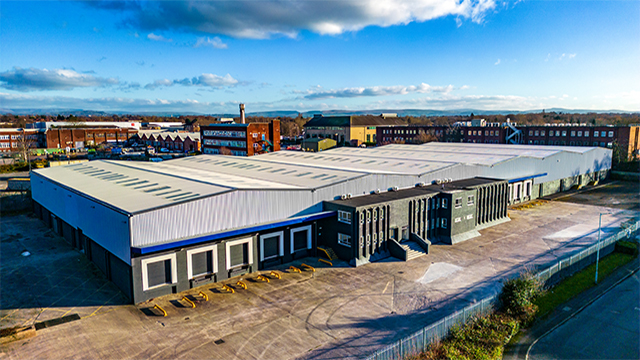Change of Pimlico shop to estate agent’s office
Use of a car spares shop in Pimlico as an estate agent’s office has been allowed on appeal. The inspector said that Lupus Street, SW1, contained considerably more shops than normally found in a suburban parade and six were currently vacant.
In his opinion, the area could absorb service uses such as those in the appeal proposal without harm to its retail function. Robert Shaw & Partners represented appellants Black Horse Agencies Gascoigne-Pees. [DOE reference T/APP/X5990/A/89/123137/P7, September 18 1989]
Brighton bed sitting rooms to be made self-contained
Conversion of eight bed sitting rooms into self-contained units has been allowed in Brighton. The council wanted the existing non-self-contained accommodation in Freshfield Road retained for the benefit of the town’s exceptionally large number of homeless. The inspector decided, however, that the proposal was not contrary to an overall policy of maintaining a mix of housing appropriate to the various needs of the borough.[DOE Reference T/APP/N1405/A/89/120109/P4, August 30 1989]
Car sales acceptable from Glasgow petrol station
Glasgow District Council took enforcement action against car sales from a petrol station on the A730 Glasgow-East Kilbride road at Rutherglen. The reporter (inspector) agreed that car sales were not ancillary to the main petrol station use. He decided, however, that no risk to highway or pedestrian safety would arise even after the road became a dual carriageway. The surrounding area was generally industrial and commercial in character and adequate land was available in rear for customer parking.
He therefore sustained (allowed) the appeal subject inter alia to a condition that not more than 12 cars should be displayed for sale at any one time. Appellants Texaco and Stadium Burnside were represented by Howard-Sharp & Partners. [Scottish Office reference P/ENA/SL/304 and 309, September 7 1989]
Andover retail warehousing
In allowing an appeal against deemed refusal for 64,000-sq ft of retail warehousing 1 km from Andover town centre, the inspector was chiefly concerned with the appropriateness of the conditions requested by the local planning authority, Test Valley Borough Council. It was not, he said, the function of the planning system to inhibit competition among retailers and he had heard no convincing evidence to suggest that the unregulated sale of non-food goods would have any harmful effect on the town centre as a whole. A case had not been made out to justify a restrictive condition limiting the range of commodities that could be sold and he accordingly declined to impose it. Appellants Citygrove Retail Estates Ltd were advised by Lawson-Price. [DOE reference T/APP/C1760/A/88/104541/P7, October 17 1989]
Change from hotel to residential use allowed at Southend and Bethersden
A pair of three-storey semi-detached properties, whose present authorised use was as a hotel, had been in private residential occupation until 1972. The hotel had ceased trading at the end of 1987. Southend on Sea Borough Council refused permission for the use to revert to that as two houses because of the authority’s policy of encouraging tourism. The inspector noted that the number of hotels and guest houses in Southend had remained virtually unchanged over the past 10 years, although occupancy levels appeared to be low.
He did not, therefore, consider that loss of the appeal premises to tourism would have any real effect on Southend’s prospects of attracting visitors. On the other hand, the advantages of private residential use in terms of environmental benefit and reduced on-street parking were much more certain. The appeal was accordingly allowed. [DOE reference APP/K1555/A/89/118143/P5, September 28 1989]
Conversion into residential units of a motel and conference development on the edge of Bethersden on the A28 Ashford-Tenterden road had been refused by Ashford Borough Council. Loss of tourist accommodation and the effect on the character of the area were the main issues. The motel was built in 1980 within the grounds of a substantial listed building which provided bar and dining facilities. The business had, however, operated at a loss for several years. Demand for accommodation had dropped because of the diminished importance of the A28 as a tourist route and the additio,?.78?-8,’ which had taken place in Ashford. A neighbouring site, allocated for housing in the local plan, was likely to be developed in the foreseeable future. When that happened, said the inspector, residential use of the appeal buildings would be seen as a modest expansion of Bethersden rather than as an isolated pocket of housing in the countryside. The appeal was accordingly allowed. [DOE reference T/APP/E2205/A/89/112573/P5, September 28 1989]
Rebuilding after service of dangerous structure order
Erection of a two-storey extension to replace the previously removed three-storey wing of a Grade II building in Lansdown Road, Bath, was refused by the city council. As well as dismissing the subsequent planning and listed building appeals on their merits, the Secretary of State expressed the view that there was no right to re-erect a building which had been demolished following service of a dangerous structure order without an express grant of planning permission. [DOE reference APP/P 0105/A/89/113577, 113847 and E/89/804191, October 23 1989]







